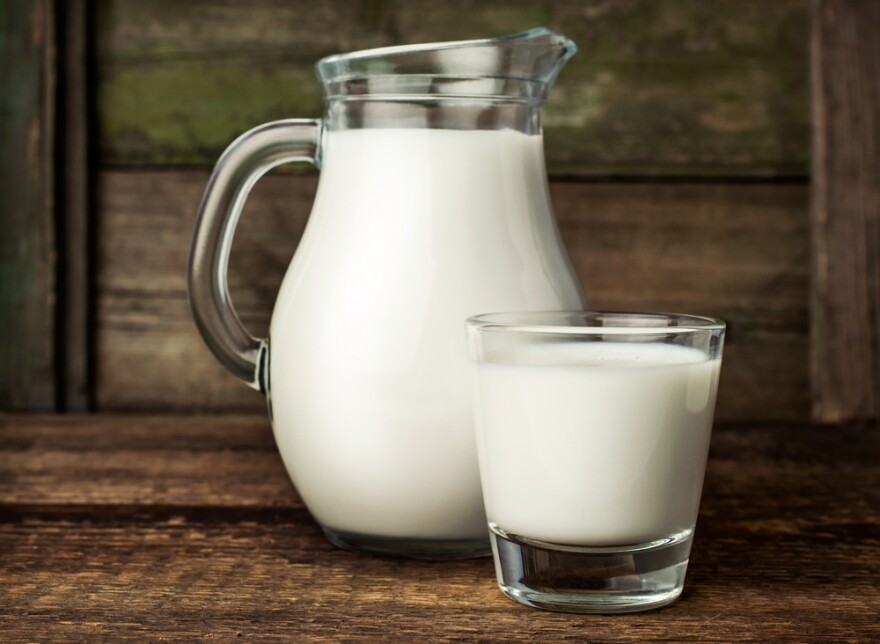People still buy milk from cows, but far less than before. Here's an expert's look at why and whether milk’s still essential to our diets.
The federal 2015-2020 Dietary Guidelinesrecommend that anyone age 9 or older have three cup-equivalents of fat-free and low-fat (1%) dairy products a day. This includes milk, yogurt, cheese and fortified soy milk.
But the average American adult consumes about 1.6 cups each day, far short of the recommended levels.
Rachel Trammell, a registered dietitian with Parkland Hospital System, tells KERA Vital Signs host Sam Baker there are seveal reason why dairy consumption is down, beginning with social media.
INTERVIEW HIGHLIGHTS:
Why Dairy Milk Consumption Is Down:
- Part of the reason is because of different wellness ambassadors, you could say, on social media promoting things like almond milk, cashew milk, things like that.
- Consumption of things like almond milk and cashew milk, oat milk, has skyrocketed. One reason is because a lot of people are becoming either a part-time or full-time vegan. They're not consuming dairy because that's not included in a vegan lifestyle.
- Another reason is the environmental concern. Some people say dairy cattle and beef cattle production contributes to methane production, which then contributes to global warming.
Nutritional Value of Non-dairy Substitutes:
- Almond milk has about one gram of protein and eight ounces. Not very much. It has added calcium, it doesn't measure up nutritionally to cow’s milk.
- Soy milk is a great alternative because it has about eight grams of protein in an eight ounce glass, which is the same as milk.
- Almond milk, oat milk, cashew milk - those three are not as nutritionally adequate as dairy milk or soy milk.
- Pea milk. The green vegetable pea protein is really popular with people who don't do whey protein because peas actually strangely have a lot of protein. Usually, if you see a vegan milk product or some other product that has protein, it's going to be either from pea or soy.
Is Dairy Milk Still Considered An Essential Part To Our Diet?
- It is very rich in branched chain amino acids (https://www.healthline.com/nutrition/benefits-of-bcaa) and those are really good for recovery. So if you have an active lifestyle where you lift weights or run long distances, that's a great recovery drink.
- Milk is a great source of calcium. Some milk is fortified with vitamin D. Vitamin D helps us absorb calcium, so that's a good power couple right there.
- Also, milk is the good source of B12 and B2. Those are great not only growth but also cognitive health and things like that.
Your Choice Of Dairy Milk Depends On Your Goal:
- If your goal is to lose weight, try 2% or 1% milk. It has a little less fat, but still has all that great protein and those good carbohydrates that we need to help with joint health or you just want that good healthy fat that dairy can provide. Whole milk isn't bad, but we do need to consider that it does have more calories than low fat milk.
RESOURCES:
Milk: Is it as healthful as we think








